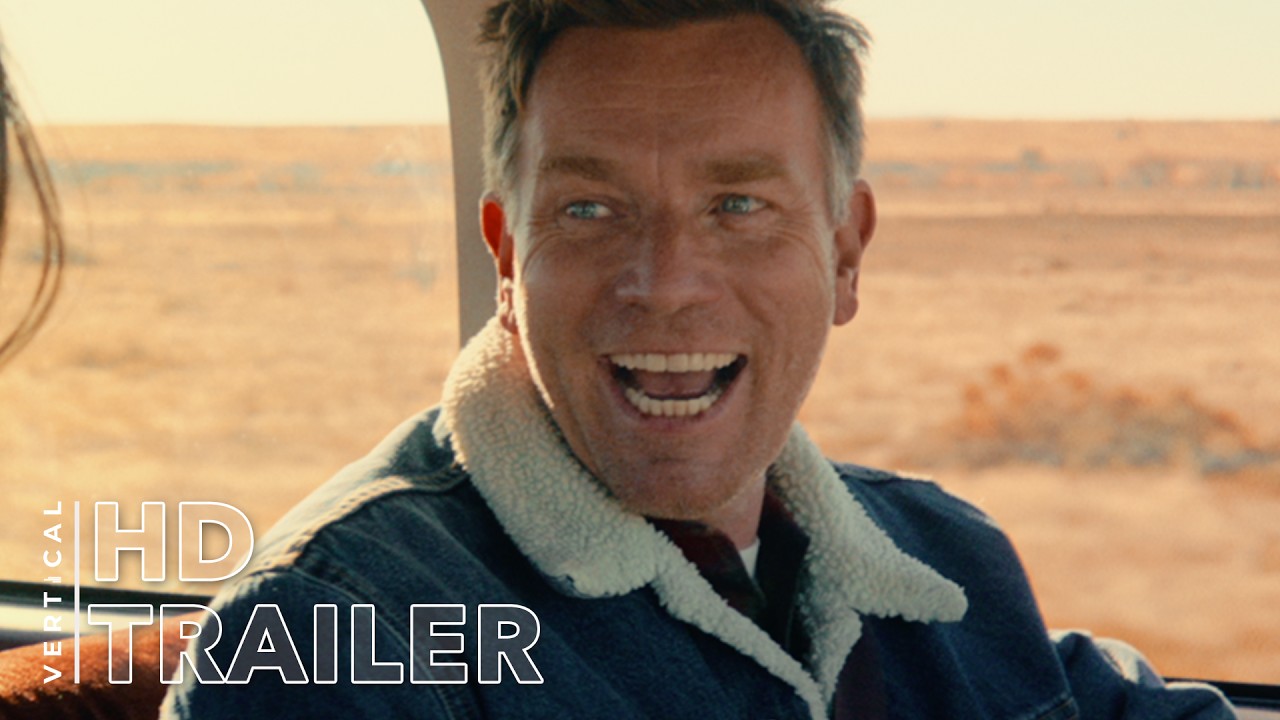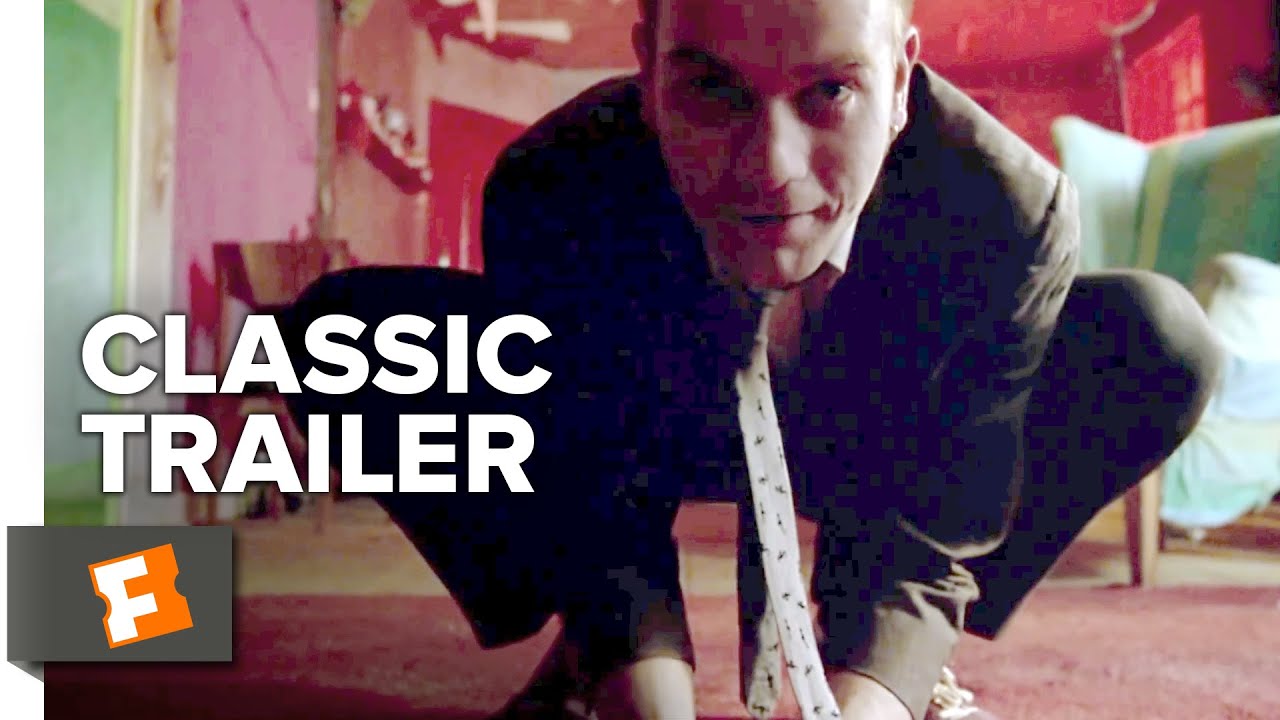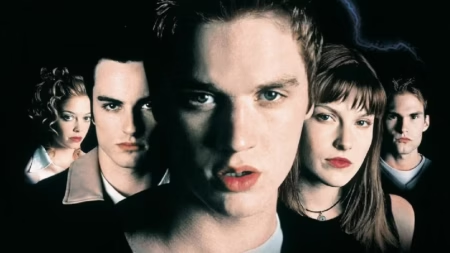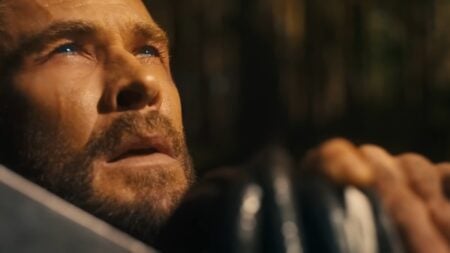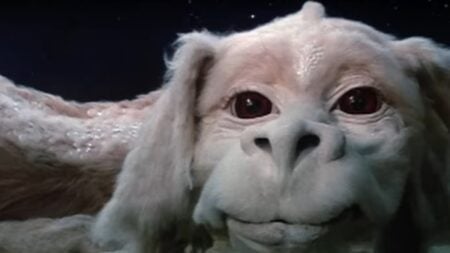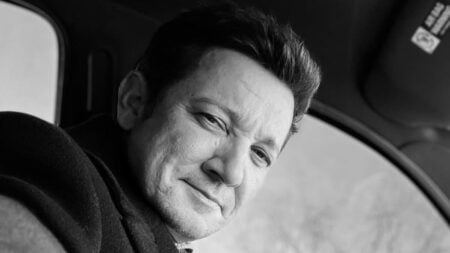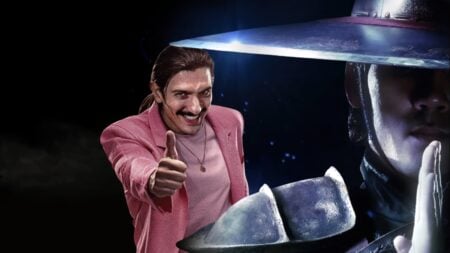There is plenty to the filmmaking process that many don’t know. Representing The Nerd Stash, I got to sit down with Autumn Dea, the editor of Bleeding Love. The film stars Ewan McGregor and his daughter Clara produced the film. We talked about the editing process, her favorite movies from the Star Wars actor, and a tease of her next project.
Bleeding Love follows the father and daughter as they go on a road trip. The trip brings up the trauma he induced on her, as they both have their respective struggles when it comes to addiction. It explores a broken father-daughter relationship that is being repaired and the destructive nature of addiction. It is out in theaters today.
The following interview with Autumn Dea was edited for length and clarity.
Exclusive Interview: Bleeding Love Editor Autumn Dea Talks Ewan McGregor, Editing, and More
Tristan Zelden: I want to get started with a little bit of an icebreaker and to get your insight into your editor’s eye. What movie do you think has great editing and why?
I think the editing in Eternal Sunshine of the Spotless Mind is amazing. I mean, that film is told in a nonlinear way, and then it’s also just got these surrealist elements and a love story, and it’s a lot to track, but I think the editing is so perfect. It strikes the balance with the tone so perfectly. I think It really tells the character’s emotional journey really well, and then it’s just cool editing on top of it. Some of the scenes are just really stylized.
Autumn Dea
Tristan Zelden: Correct me if I’m wrong, but you started editing around high school?
I had a video production class in my high school, so I learned Final Cut 7 when I was 16.
Autumn Dea
Tristan Zelden: What made you want to pick up editing and then decide, “Oh, I want to do this for a career.”
When I was 10, I asked for a camera, and I would make movies, but I didn’t have editing software, so I would edit in-camera. So I’d shoot the shot and then run around to the other side to get the reverse shot and run back around.
And so, I think at a young age, I understood how editing worked. Then, in high school, I got into it just [by] learning the Final Cut. And then, I think in college, I just liked being the last writer on the film and having that type of impact on the project. I think that’s when I was like, Okay, I want to do editing as a career.
Autumn Dea
Tristan Zelden: For Bleeding Love, I think one of the main attractions for a lot of people is the fact that Ewen McGregor stars in the movie along with his daughter. What was it like when you got this job and were like, ‘Oh, Ewen McGregor and his daughter are the leads in this movie?’
It’s such a dream. When I first even got the email from my agent, just a ‘For your consideration’ to read the script, it says, ‘Starring, Clara McGregor, Ewan McGregor.’ And I love Ewan McGregor. I’ve watched so many of his films from indie films back in the day, Trainspotting. And there’s just so many movies I love of his, and I think he’s just a really top-tier actor.
Autumn Dea
Tristan Zelden: I have to ask, what’s your favorite Ewan McGregor movie?
I really love Big Fish. I really love Trainspotting. There’s one other film, and I don’t know why it’s escaping me right now. I think it came out in 2011. It was an indie film. I should have looked this up before I joined. I forget what it’s called. I’ll have to find it, but that’s one of my favorite movies, too.
Autumn Dea
Tristan Zelden: Bleeding Love tackles some very strong themes, such as addiction. How would you further emphasize or explore those themes through the editing process?
I think what’s interesting about the film is it has those heavy themes, and trying to balance those heavy themes tonally with some levity was part of what we explored in the edit bay. There are surreal elements throughout the film, and when it came to the addiction side of it, it was nice because you got to build on some of the surreal elements, along with the sensations of being under the influence. So we tried to balance addiction in a grounded way, but also in the feeling of what addiction is. I think the score was really impactful with that as well.
Our composer, Raven Aartsen, did a great job bringing the outside world into the score. So it all culminated in these feelings of drug use.
Autumn Dea
Tristan Zelden: When I watched the trailer, there was a specific feel to the tone and the way the scenes were played out and presented. Can you talk a little bit about finding the feel of the film?
That was one of the challenges, but also one of my favorite parts of the film. I think that Emma [Westenberg] has such a good perspective and vision, and that’s something I really appreciate about her as a director. And so she knew going into it, even with the way she shot it, how the tone would be in certain areas.
When it came to the editing, it was more about, like I was saying earlier, finding the balance of keeping it grounded but also having these whimsical elements and things about it that make it feel like what it’d be like to be on a journey because it is a road film and you just meet people along the way and they’re part of the plot point, but they’re also part of just building that world.
Autumn Dea
Tristan Zelden: I love flawed characters who are hard to empathize with or love. Through the editing, how did you try to get the audiences on board, as both Ewan’s character and Clara’s character have their own flaws that could challenge the audience.
I love a flawed character. I think for this film, it was really important to understand how I was building each character’s emotional arc because they both have flaws. So I think at the beginning of the film, there’s a scene where they have to have a tow truck driver, and then they end up going to someone’s house. You start to really see there that, okay, the dad cares. And you can tell by his body language and his urgency to check in on his daughter. But then you see the daughter behaving in a certain way, and you don’t love her at first. You don’t understand why she is so rebellious and standoffish when she seemingly has this loving father.
Then we wanted to build on that and have it shift throughout the film where you start to understand, okay, with some context, why the daughter is the way she is. And then you start to look at the father differently. We were like, oh, you were an absent father. And that culminates. It starts to happen in a scene maybe just before the midpoint in act two, where they go to an AA meeting together. And even though the daughter doesn’t participate, it’s really the first time we discover what her childhood was really like and what her dad was like, but it’s also the first time she understands his point of view.
We oscillate between liking one and liking the other, wanting them to reconcile, and getting angry at them.
Autumn Dea
Tristan Zelden: As the film progresses, different types of shots are used from the first act compared to the second and third act. Can you talk a little bit about the shot choices made throughout the film and how they evolve?
A big part of the visual language is just the road itself and the scope of the road and what we see and what we don’t see. So in the first act, we’re predominantly in more close-up shots, medium shots, things like that, and we don’t really get a sense of the worlds that they’re in. Then, as the film progresses and as their relationship progresses, that’s when we start to see the scope of the world, beautiful shots of the exterior, and things like that.
That was an intentional choice. It’s something that I was working with, and also Emma wanted that. So it was fun to just, as you get through the film, start to see more and more beautiful shots and nature and things like that. Some breathing room as the relationship gets better.
Autumn Dea

Tristan Zelden: Was there anything spontaneously found when you were in the edit?
There’s flashback scenes and things like that. The way we addressed the flashback scenes was what we kind of discovered in the edit, structurally, at least. They’re written in a certain way, but they didn’t necessarily transfer to the edit in the way that it was intended. So, we had to look at how they fit and how to reorganize them and structure them because they don’t necessarily play as a straight-up flashback anymore. Sometimes, there are moments of feeling something or seeing something but not having it be a traditional scene where we go back in time.
I think discovering how to address that world is a big part of it. I think we did a good job with that. I am happy where it landed.
Autumn Dea
Tristan Zelden: The film had a premiere at South by Southwest. Was that your first time going there, and what was that experience like?
It was my first time physically being there. I edited a film in 2019 that actually won South By, but that was in 2020. That was the year the in-person got canceled because of COVID. I never actually got to go that year, so I was really excited that this past South by Southwest, I got to go and experience it. It was a lot of fun.
We had some test screenings, but besides that, it was the first time I’d seen it finished with an audience. You get to hear the audience’s reactions. It was amazing how much worked and how much that you’re intending actually plays out. You hear the audience laugh or cry. They pick up on the way more than what you’d even expect.
Autumn Dea
Tristan Zelden: Throughout your career, you’ve been able to work on some really different genres. This movie is certainly different from some of your previous work. How do you go about tackling different genres, from a drama to a comedy?
I am very much story-based because, obviously, I’ve done documentaries, too, and scripted. So, there’s a variety of things. My first instinct is the story. Do I like the story? Does it resonate with me, or is this a story that I feel needs to be told and out in the world? That’s how I first decide on projects.
It is challenging sometimes. It’s what I love. I’m a very empathetic person by nature. For me, flexing different muscles and switching different gears mentally in genre. I think my empathetic nature benefits me because I can just put myself in those worlds and try to feel what the characters are feeling.
Autumn Dea
Tristan Zelden: Final question: Do you have a dream project, whether it be a franchise or IP thing, a specific genre you want to work in, or maybe there’s a person you want to work with?

I don’t necessarily want to work on a big franchise film or anything like that. I like stories that are original and haven’t been done before or done in a different way. My dream would be to work on films that people haven’t seen, and people don’t even know they want or need.
I have dream directors. I love Bong [Joon-Ho], and I love Barry Jenkins. I have all these directors that I love, and they would be amazing to work with. They, of course, have editors that they already have used for their whole careers. Those would be dreams.
Autumn Dea
Tristan Zelden: Congratulations on the new film. I am excited to see what you do next, and I will have to check out Bleeding Love this weekend.
That would be awesome. Thank you so much for the support, and thanks for chatting. I’m excited.
I’m working on another scripted narrative feature right now, actually.
Autumn Dea
Tristan Zelden: Anything you can tease?
I don’t know how much I can tease about it. It’s a dramedy rom-com. The director is Chad Hartigan.
Autumn Dea


